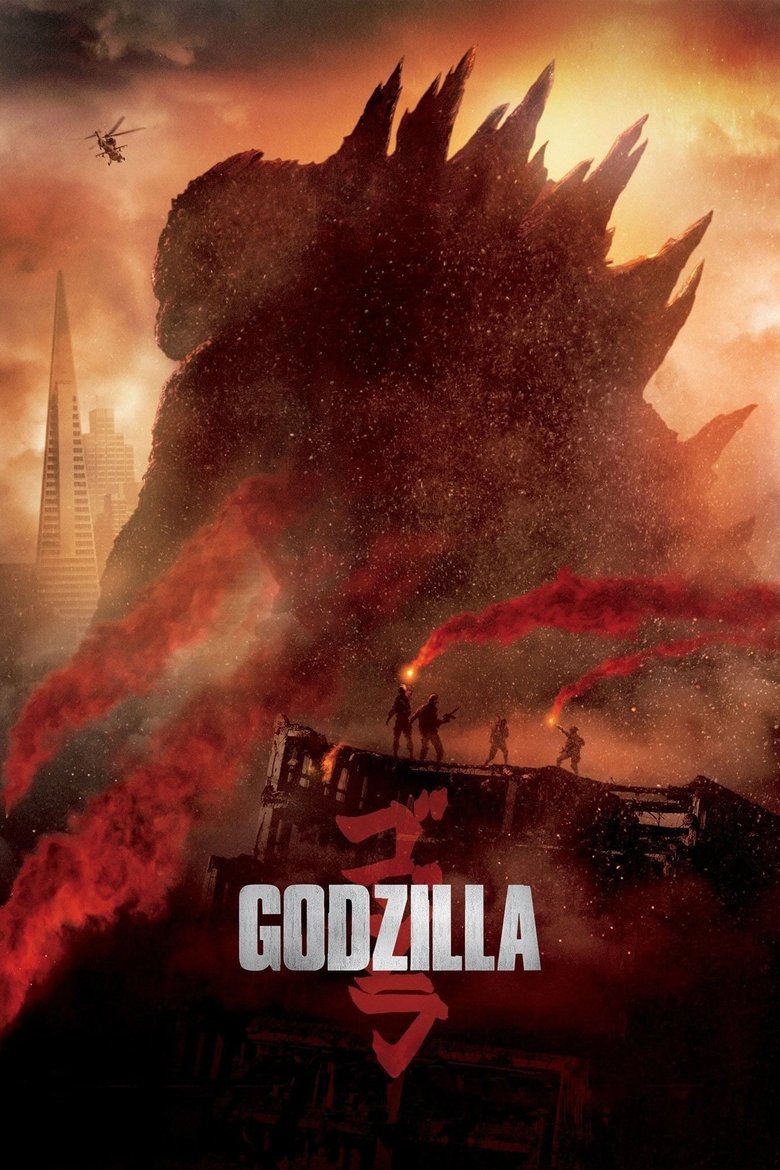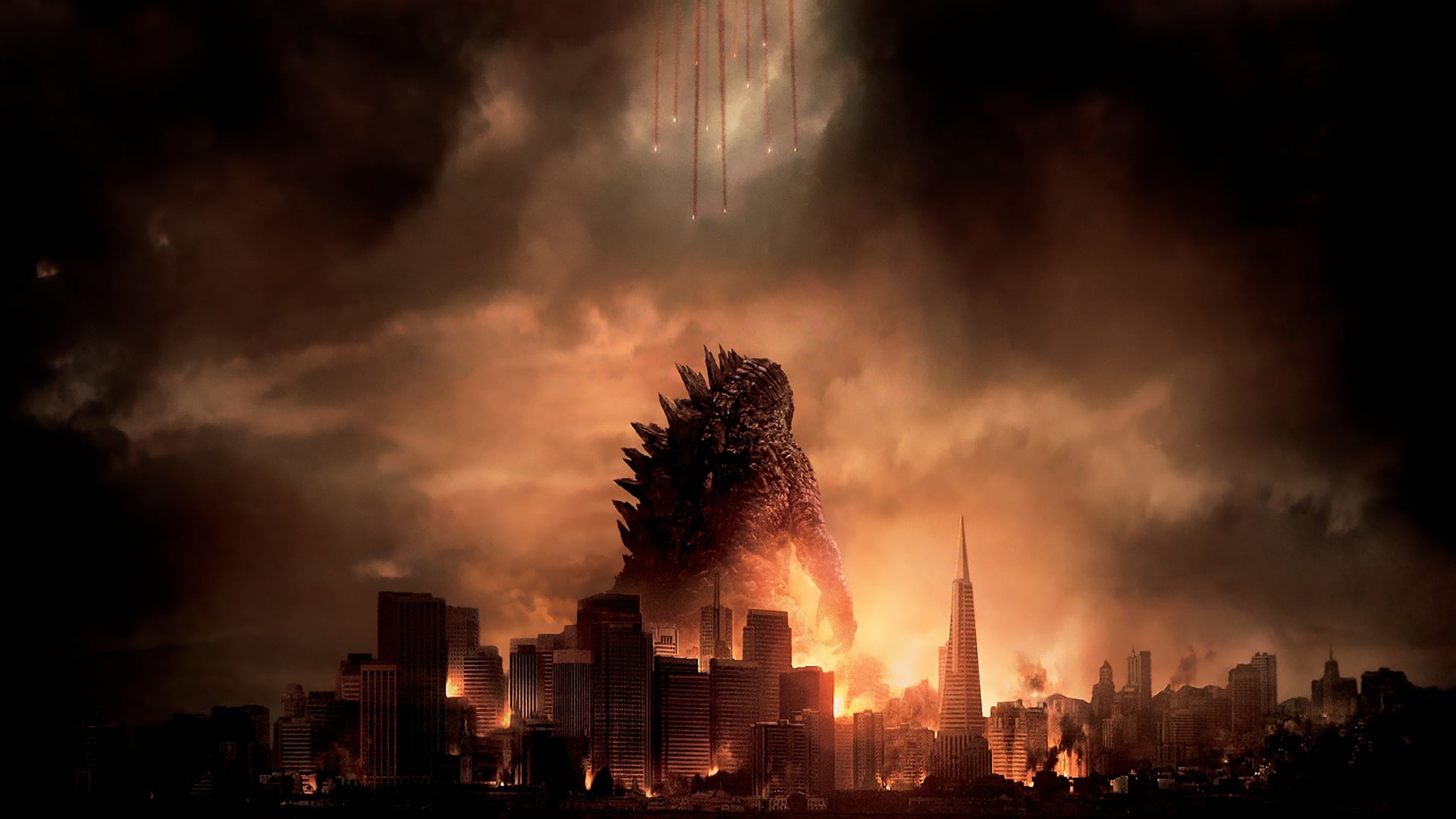**Fundamentals, reception.**
1. American/Japanese live action feature length film, 2014, PG-13, 123 minutes, science fiction, action, thriller. The spoken word is in English, with some sub-titled Japanese.
2. IMDB: 6.6/10.0 from 239,012 audience ratings.
3. Rotten Tomatoes: 74% on the meter (average 6.6/10); 67% liked it from 171,052 audience ratings.
4. I saw this film off DVR from Cinemax.
5. Directed by: Gareth Edwards.
6. **Starring**: Bryan Cranston as Joe Brody, Ken Watanabe as Dr. Ishiro Serizawa, Juliette Binoche as Sandra Brody, Sally Hawkins as Dr. Vivienne Graham, Aaron Taylor-Johnson as Ford Brody, Carson Bolde as Sam Brody, David Strathairn as Admiral William Stenz, Elizabeth Olsen as Elle Brody.
7. Demographic targets: Godzilla fans, action fans, international market.
8. (from Box Office Mojo) Estimated production budget, 160 million USD. Estimated gross revenue as of 01jan2015: States, 200.7 million USD (38%); overseas, 328.0 million USD (62%).
**Setup and Plot**
1. In the opening sequence, Joe Brody, his wife Sandra and son Ford are in Japan. Joe and Sandra work at a project that aims to contain some unexplained phenomena involving huge amounts of energy and a partially buried large object. The object turns out to be living, breaks much of the containment apparatus, and causes widespread tragedy. A heavier blanket of secrecy is applied.
2. Jump forward to the present. Ford is grown up, is in the US armed services, and has a wife Elle and son Sam in San Francisco. Ford gets a call from Joe, then goes to Japan to get him out of jail. While Ford helps out Joe, the object (a 'muto') revives, breaks free this time, and flies away, leaving even more destruction and death than in years before.
3. A second, larger muto awakens in Nevada. The two mutos are tracked by the US Navy, which is now actively involved. The mutos' activity awakens Godzilla from his long slumber in the Pacific.
4. Ford and Dr. Serizawa are drawn into the military's quest to contain the mutos. Elle and Sam are at risk as the three giants converge on San Francisco.
**Observations**
1. True to tradition in Godzilla movies, human activity is depicted as futile. Most human efforts against giant monsters have no noticeable effect. The rest of our efforts catalyse the monsters to rain down more destruction on human cities and military personnel.
2. In a few of the many Godzilla films I have seen, a child is rescued, or a trapped helpless person is released. But for each such action, thousands of human lives are lost, and tens of billions of dollars of real estate value are zeroed out. The contrast accentuates the helplessness of the human race against forces it cannot control and never will control.
3. In a slight departure from what I'm used to in the Godzilla universe, a human being does something that will make the survival of the human race more likely. Watch the film; you can't miss it.
4. Godzilla causes a huge amount of property damage and loss of life, though not nearly as much as the mutos cause. The case could be made that Godzilla in this film, as in many others, is indifferent to the fate of the human race. He does in the mutos in order to get back to his snooze beneath the Pacific.
5. **One line summary:** Godzilla saves humanity from the mutos in an 8 minute appearance.
6. Three stars of five.
**Scores**
1. **Cinematography**: 8/10 Some of the SFX were cheesy, but most were fabulous.
2. **Sound**: 7/10 Few complaints. I could hear the dialog. The music was not too irritating.
3. **Acting**: 6/10 Bryan Cranston, Ken Watanabe, Juliette Binoche, David Strathairn, and Sally Hawkins were fine in their limited roles. Aaron Taylor-Johnson's performance was both boring (beginning) and believably heroic (toward the end), so I ended up liking him.
4. **Screenplay**: 6/10 The director stayed true to the franchise, but with updated SFX and a few other adjustments. The holes in the plot, though, seemed endless.




